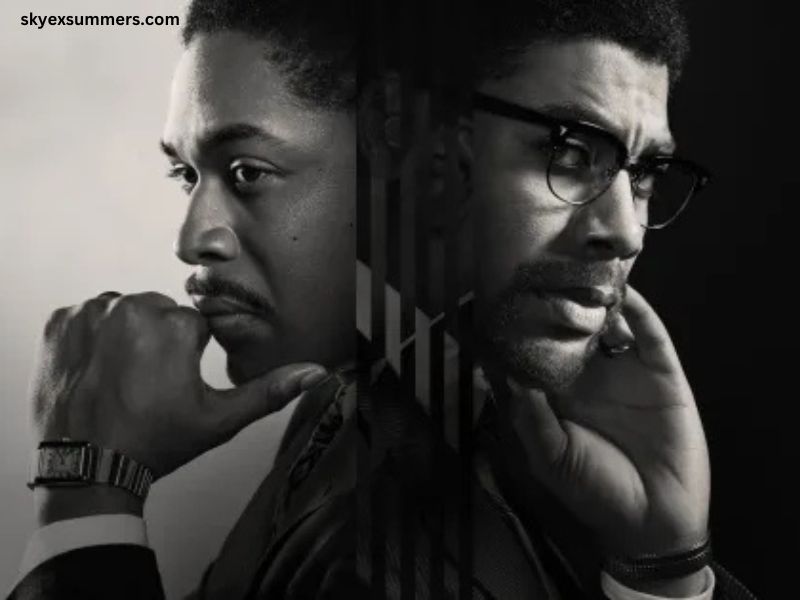The civil rights movement in the United States during the 1950s and 1960s was characterized by a rich tapestry of ideas, strategies, and philosophies aimed at achieving racial equality and social justice. Two of the most prominent figures of this era were Philosophies of Malcolm X and Martin Luther King Jr. While both sought to dismantle systemic racism and uplift African Americans, their philosophies and methods often diverged significantly. Understanding their contrasting approaches provides a nuanced view of the civil rights movement and highlights the complexities of advocating for social change.
Malcolm X: A Philosophy Rooted in Identity and Empowerment
Malcolm X, born Malcolm Little in 1925, experienced a life marked by racial violence and personal turmoil. His philosophy was deeply influenced by his early experiences with racism, the loss of family members, and his eventual conversion to the Nation of Islam while in prison. This organization preached a message of Black self-sufficiency, identity, and empowerment. Malcolm X’s philosophy can be best described through several key tenets:
1. Self-Identification and Black Nationalism
Malcolm X emphasized the importance of self-identification for African Americans. He rejected the notion of assimilation into a predominantly white society, advocating instead for a strong sense of Black identity. His belief in Black nationalism sought to empower African Americans to define their own destinies, free from the constraints imposed by a racist society. He argued that true freedom required a conscious acknowledgment of one’s heritage and an embrace of Black culture.
2. Direct Action and Self-Defense
In stark contrast to King’s philosophy of nonviolence, Malcolm X believed in the necessity of self-defense. He argued that African Americans had the right to protect themselves against violence and oppression. His famous declaration that “by any means necessary” individuals should fight for their rights encapsulated his belief that oppressed people must take a stand against their oppressors, even if that meant resorting to violence. This perspective resonated with many who felt that nonviolent protest alone was insufficient in the face of systemic brutality.
3. Critique of Integration
While Martin Luther King Jr. sought integration as a pathway to equality, Malcolm X was skeptical of this goal. He viewed integration as a form of subjugation, arguing that it perpetuated a system that marginalized Black people. Instead, he advocated for economic independence and the establishment of separate institutions that could serve the needs of African Americans. His philosophy was deeply intertwined with the idea that empowerment came from self-reliance rather than reliance on a society that had historically oppressed Black people.
4. Spiritual and Religious Dimensions
Malcolm X’s religious beliefs played a crucial role in shaping his philosophy. Initially, his faith in the Nation of Islam provided a framework for understanding the plight of African Americans. However, after his pilgrimage to Mecca in 1964, Malcolm began to adopt a more inclusive worldview, recognizing the potential for solidarity among oppressed people globally, regardless of race. This evolution reflected a growing understanding of the intersectionality of struggles for justice.
Martin Luther King Jr.: A Philosophy of Nonviolence and Inclusion
In stark contrast to Malcolm X’s philosophy, Martin Luther King Jr. was a proponent of nonviolent resistance as a means of achieving social change. Born in 1929, King was heavily influenced by his Christian faith and the teachings of Mahatma Gandhi. His philosophy can be understood through several core principles:
1. Nonviolent Resistance
King believed that nonviolence was not only a strategy but a way of life. He saw it as a moral imperative, asserting that violence would only perpetuate a cycle of hatred and destruction. His approach aimed to win over the hearts and minds of oppressors, fostering understanding and reconciliation. King’s famous campaigns, such as the Montgomery Bus Boycott and the March on Washington, showcased his commitment to nonviolent protest as a means of effecting change.
2. The Beloved Community
Central to King’s philosophy was the concept of the “Beloved Community.” He envisioned a society where people of all races and backgrounds could coexist in harmony, marked by love, understanding, and justice. This vision emphasized the importance of inclusivity and cooperation, arguing that true equality could only be achieved through mutual respect and understanding.
3. Integration and Equality
Unlike Malcolm X, King championed the integration of African Americans into all facets of society. He believed that true justice required dismantling the barriers of segregation and discrimination, enabling Black individuals to participate fully in American life. King’s philosophy was rooted in the belief that the fight for civil rights was fundamentally a fight for human rights, extending beyond racial boundaries.
4. Faith and Morality
King’s Christian faith profoundly influenced his philosophy. He often framed the struggle for civil rights in moral terms, invoking religious imagery and teachings to inspire action. His belief in the inherent dignity of every person and the capacity for change was rooted in a deep sense of hope and faith in humanity.
Convergences and Divergences
Despite their differences, Malcolm X and Martin Luther King Jr. shared common ground in their ultimate goals: the liberation of African Americans and the dismantling of systemic racism. Both recognized the urgency of the struggle for civil rights and the need for a collective response to oppression. However, their methods and underlying philosophies often placed them at odds with each other.
1. Different Views on Violence
The most significant divergence between the two leaders was their stance on violence. King’s unwavering commitment to nonviolence often contrasted sharply with Malcolm X’s readiness to endorse self-defense, reflecting broader philosophical differences regarding how to confront oppression. This divergence became particularly pronounced during the later stages of the civil rights movement when some activists began to embrace more militant approaches.
2. Approaches to Identity and Integration
Malcolm X’s focus on Black nationalism and identity stood in contrast to King’s vision of integration and inclusivity. While both leaders sought empowerment for African Americans, Malcolm emphasized self-determination and separate institutions, while King championed the idea of a racially integrated society. This difference highlighted a broader debate within the civil rights movement regarding the best path forward for African Americans.
3. Evolution of Thought
Over time, both leaders evolved in their philosophies. After leaving the Nation of Islam, Malcolm X adopted a more inclusive perspective on race and justice, recognizing the interconnected struggles of oppressed peoples worldwide. Conversely, King faced challenges as the civil rights movement grew more complex, leading him to address broader issues like poverty and militarism, particularly in his later years.
Conclusion
The philosophies of Malcolm X and Martin Luther King Jr. represent two vital currents within the struggle for civil rights in America. Their divergent approaches—Malcolm’s emphasis on self-identity and empowerment through self-defense, and King’s commitment to nonviolent resistance and integration—reflect the complexity of the fight against systemic racism.
While their methods differed, both leaders left an indelible mark on the civil rights movement and continue to inspire new generations of activists. Understanding their philosophies enriches our comprehension of the struggle for social justice and highlights the importance of embracing diverse approaches to effecting change. In a world still grappling with issues of race, identity, and inequality, the lessons from Malcolm X and Martin Luther King Jr. remain profoundly relevant, reminding us of the ongoing journey toward justice and equality for all.



